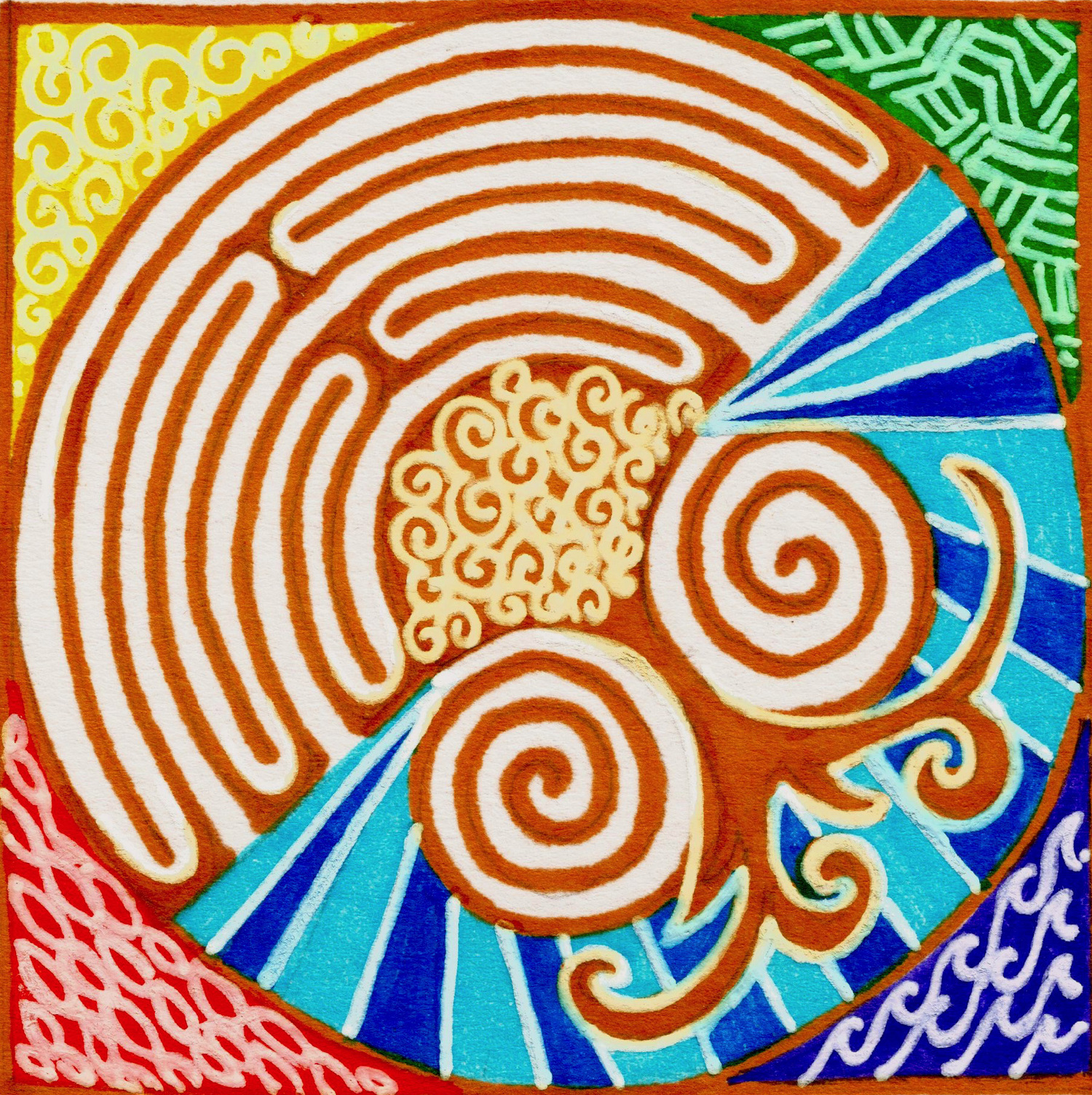Hugo the Wonder Pug
My pug, Hugo, turned 15 today, June 26. I remember the day we, my then 13 year-old daughter, 10 year-old son, and 74 year-old mother, drove to Southern Oregon to pick him up. A hot mid-August day, a day we had been anticipating after months of research and deciding on what type of dog to get for our family of four. My mother volunteered to go with us and let us use her car as it was more reliable. We brought a puppy toy, blankets and towels, water bowl and a tiny harness. We brought excited hearts, ideas for names and promises of being consistent on training and chores. I don’t remember much else about how the day unfolded except the scared whimper of a puppy, held between my children in the backseat until he finally slept, and our own oohing and awing at how soft and cute he was and the joy he would bring.
One of Hugo's favorite activities
Less than a month after I brought him home, I would be standing outside with him for one of his frequent “potty runs,” gazing at the sky erased clean of contrails. It was in first days following 9/11. I had just started my second year of seminary, where we tried to grapple with the horror of the story in theological and spiritual terms. Watching Hugo’s innocent puppy energy, holding his wiggling, soft body, somehow brought comfort during troubling times.
Hugo has been our family pet and my companion all these years. A joy and, truthfully, at times he has tried our patience. However, in all honesty any issues he has can be boiled down to “owner weakness” i.e.—poor training. Yes, I’m a wimp and I willingly admit Hugo has me perfectly trained.
Now he is an “old man.” Blind in one eye, partially blind in the other. Ears a mess, some arthritis, a very grey muzzle, anxiety—aging. Still, he seems to enjoy life (eating, sleeping, eating, sleeping some more). He still is a people magnet with “Oh, isn’t he cute!” a common comment. I say to the vet, “He is comfort measures only. We only keep him comfortable.”
"Spa" Treatment at All Paws in Hillsdale, Oregon
Keeping Hugo comfortable means monthly “spa” treatments (i.e., a salt bath when he goes to the groomers to ease joint pain), carrying him down stairs, and lots of treats. For me, it means taking time to pet him and hold him while I still can and telling him how much I’ve appreciated him over the years. I know he won’t be around much longer…months, a year? And I tear up thinking there will be a day I’ll come home and my companion won’t be there. I’m experiencing what is known as anticipatory grief.
Anticipatory grief means grappling with and grieving a loss before it completely unfolds (not always death, but for this piece that is the focus.) We reference the phrase frequently in hospice, meeting with families and friends as they journey with their loved one and start to envision a world without them. For some it feels very uncomfortable as if they are not being respectful of the person dying. For others it is a way to move toward acceptance. Like any kind of grief, there is no right or wrong way to do it and not everyone “does” or “needs to do” anticipatory grief. As hospice workers, we may not even state what a family is doing as “anticipatory grief” but instead name the emotions we are noticing (for example: anger, sadness, irritability, fear, loneliness, guilt, anxiety) and then share that as normal. We encourage family and friends to share stories with their loved one (or about them if they are not longer participating) so meaning and legacy can start to take shape and, if there are areas where forgiveness and gratitude need to occur, create space for that.
So what does this have to do with my beloved Hugo? Yes, pets are special, and as much as I love my dog, he is a dog. We don’t need to have a meaning-making conversation, though I’ve heard enough stories that I would argue some pets do need “permission” to let go at the end. I’ve discovered in life, our lessons often come in pairs. While Hugo has been aging along in his dog years, my 74 year-old mother mentioned at the beginning is now 89 and has been diagnosed with Alzheimer’s. I find I have been practicing my “anticipatory grieving” on Hugo as a way to gently move into my continually unfolding anticipatory grief with my mother (which has its own nuance with dementia—something to unpack in another blog.)
I feel anticipatory grief is a gift when accepted. It allows us to prepare, to share, care and bare together a journey of impending loss. With willingness there can be an exploration of the layers of complex relationships with greater authenticity and truth. An opportunity for deeper healing. And when the time does come to part ways, a knowing that the grief to come will not feel like a stranger has crept into your home, but more of an acquaintance who needs tending, befriending even, as you travel a new road.








